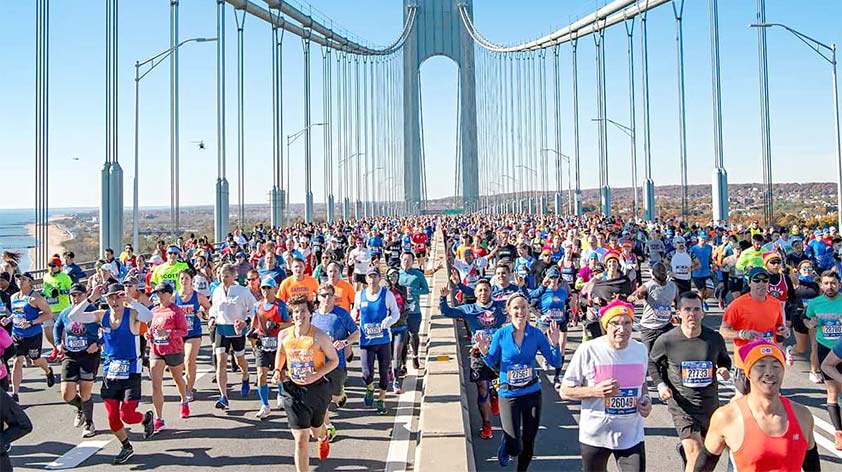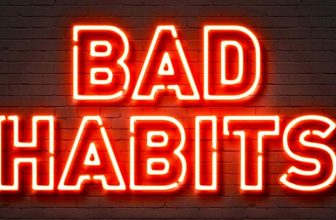
The past weekend was unforgettable for New York City. Not only was it the first large-scale running race the city has held since the pandemic began, but it marked the 50th anniversary of the TCS NYC Marathon. As dawn broke, approximately 30,000 New Yorkers and visitors from over 100 different countries made their journey over to Staten Island (not an easy commute) to the famous Verrazano Bridge start line, rallied on by the iconic tune, “New York, New York” by Frank Sinatra.
It was indeed an exciting day for all New Yorkers and a mark of, fingers crossed, normalcy returning. But, what makes anyone want to run 26.2 miles? Well, I’ve run the infamous race twice, and can tell you – it’s not all about the large meal and beer at the end! In my experience and that of many of my peers, we run first and foremost for our mental health. With that said, follow on for NYC Marathon 50th Anniversary: Running & Mental Health!
No Longer Taboo!
We’re finally in the days where Mental Health is moving out of its dated ‘taboo’ status. By my observation, I believe the pandemic had much to do with this. While cities like London and New York have historically waxed-progressive; even the most cosmopolitan cities had a “shhsh” approach to anything regarding the state of your emotions and mind pre-pandemic.
Perhaps schools will finally start talking about the mind now. It’s long overdue, and none of us have had a single minute of instruction about the mind, although we attend school for some 20-odd years of our lives!
But now, we’ve seen remarkable statistics take the headlines. Last summer, it was found that 13% of adults reported new or increased substance abuse. 11% reported thoughts of suicide in the past month. Startlingly, health care providers have been disproportionately affected, reporting symptoms of anxiety or depression, increased substance abuse, and suicidal thoughts in approximately 12% more than the general population (KFF, 2021)
But with these somber statistics, there is a silver lining: the public is no longer ignoring mental health. Here in America, the conversation is finally starting. In the public realm, we are finally being taught how to handle our mind appropriately and healthily, instead of shoving things under the rug.
I feel lucky to have had a helpful tool in my mental health tool belt since years before the pandemic though, and what’s that you might ask? Running.
Running & Mental Health
For a long while, I thought I was the only person who secretly benefitted loads mentally from running. I saw that my peers loved the hobby as well, but wasn’t sure if it was for the same “hush-hush” reason.
That was until I read the validating book, “Running is My Therapy”, by Scott Douglas. I would highly recommend Scott’s book for anyone seeking to learn more about this topic! Basically, I learned that I was not alone in benefitting from running mentally, and that there are basic scientific reasons for those benefits. It turns out, running is immensely powerful in fighting both depression and anxiety (two sides of the same coin) but symptoms can present much differently.
As I learned in Mr. Douglas’ book, running can be extremely effective in managing anxiety and depression. Those with depressive symptoms benefit from “activation” – in short, doing something that improves mood – as opposed to not doing anything at all – creates a vicious cycle that is hard to escape.
Running serves as an amazing opportunity to utilize activation, without necessarily having to socialize (something that those with depression often find as a barrier). While, in the case of anxiety, running is a fabulous opportunity to de-stress and let go of the worries of the day. Running can be especially helpful in practicing mindfulness – becoming aware of the moment you’re in, and forgetting the rest.
The Runner’s High
When discussing running’s alleviation of anxiety and depression, we can’t forget that fabled “Runner’s High”!
Many regular runners experience this sensation of elevated mood and elation when reaching a certain mileage in their run. But, is this just an old-wives tale, or is there factual evidence to back this state up?
While the public generally chalks this up to endorphins, science points to a different biological substance – endocannabinoids. While endorphins lack the ability to cross the blood-brain barrier, endocannabinoids breeze right through the barrier, promoting psychoactive effects like reducing anxiety and promoting feelings of calm.
Though the “high” is mostly fabled, this does not discount the evidential long-term benefits of running on mental health. Science backs that running can produce new brain cells, increase brain performance, and even expand the hippocampus (where memory and learning take place in the brain). These brain changes can lead to increased productivity, improved concentration, and elevated mood – all of which I experience when I include running in my daily life.
One Step at a Time
Of all the misunderstanding around running, I think the false narrative that you have to be an pro-athlete to run is the most popular. Truly, anyone can be a runner. You do not have to be able to sprint or run a 7-minute mile! You don’t have to be thin or fit. You don’t even really have to have to fuss about having a great pair of shoes to get started either! You just have to allow yourself to try.
They say it takes 21 days to create a habit. In my personal running life, I’ve found myself particularly discouraged when I let myself fall off track with my running. Every step is tough, my chest is tight, breathing doesn’t come easy, and I can hardly cover the mileage I once did. But time and time again, if I’m patient with myself, by about the third week, my fitness starts to return and my abilities increase! The amazing part is, the mental benefits can be felt from the very first day I set foot.
If you’re interested in making running a part of your life, I challenge you to take on a 21-day challenge, and rather than focusing on your body; observe the way your mind changes. A great way to start is by using the app: Running. The app can be a little misleading with its initial advertising of weight loss-promotion, but what I love about it, is the customizable interval-training approach it offers.
Your first attempt may only consist of 5 minutes’ total running time, for example! Alternating repetitively between jogging, walking (or power-walking), running, and sometimes sprinting; it’s a great way to train your body (and mind) for longer distances in the future. So, what are you waiting for? With all this valuable information, why not just take the first step?
What do you think of running not only for the physical benefits, but also the mental ones? Let us know in the comments below, and join in the conversation on Facebook, Twitter & Instagram!









